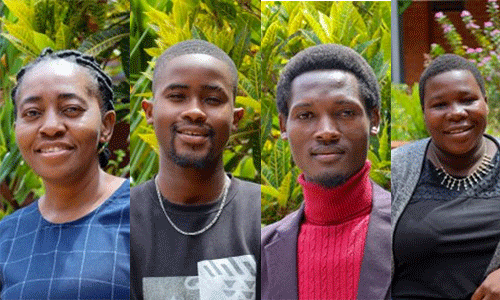Africa University has gone into a landmark partnership with Claflin University in Orangeburg, South Carolina, USA, to offer the two-year Master of Science in Biotechnology with a specialization in Climate Change.
Your support of the Africa University Fund apportionment supports the general operating expenses of Africa University including faculty and staff salaries and vital infrastructure.
Claflin University, a Historically Black University (HBU), opened its doors 150 years ago, breaking down barriers to become the first university in South Carolina to welcome all students regardless of race. The degree is a response to the ever-evolving global climate change crisis that threatens to significantly set back food security, biodiversity and health in coming years with the brunt of the burden falling upon developing countries that are yet to build resilience in this critical area.

Africa has over the years experienced an increase in the frequency of droughts which has been attributed to shifting weather patterns caused by global warming. Food supply systems that are already fragile, compounded by water shortages and increasing fragility of states due to conflict combine to present a crisis point for Africa and its ability to safeguard nations from the socio- economic effects of climate change.
The MSc.in Biotechnology aims to change this with a very unique focus on the interaction of living organisms, biological systems and climate change. The overall aim is to upskill African scientists on the continent to be able to rise to the challenge with home grown and contextually relevant solutions. For the 2023/24 intake, four bright students were selected after a rigorous application process. Hailing from Nigeria, Mozambique, Kenya and Zimbabwe, they are Glory Clitus David Kuhtural, Zaqueu Callisto Antonio, Nyamongo Abiod Nyachiro and Brenda Makonyere respectively.
Speaking to his passion to serve the continent and develop solutions that will address the climate change- related issues in his country of Kenya, Nyamongo Abiod Nyachiro said,” I chose to pursue my masters in Biotechnology and Climate Change because for my Undergraduate studies, I did Animal Science and had the opportunity to do my internship at one of the biggest fish farms in Kenya called Segena. Such an experience motivated me to advocate for climate change as some of the activities done at the fish farms affects the climate. Also, I have been an individual that has always been interested in technology. “
Glory Clitus David Kuhtural, an alumna of Africa University whose area of specialization is climate change and food security said, “I chose to do this program because I want to help advance the sustainability of food systems and reduction of greenhouse gas emissions. I really want to inspire a whole generation of youths!”
With other specializations on the intersection of the increase of the Malaria disease burden and climate change, as well as innovation in biotechnology, the highly dynamic group is set to advance the cause of African climate change research.
story by Jeanette Dadzie, Africa University
One of seven apportioned giving opportunities of The United Methodist Church, the Africa University Fund transforms Africa by educating and empowering students from across the continent through Africa University, the first fully accredited, United Methodist-related educational institution on the continent. The Africa University Fund supports the general operating expenses of Africa University including faculty and staff salaries and vital infrastructure. Please encourage your leaders and congregations to support the Africa University Fund at 100 percent.





